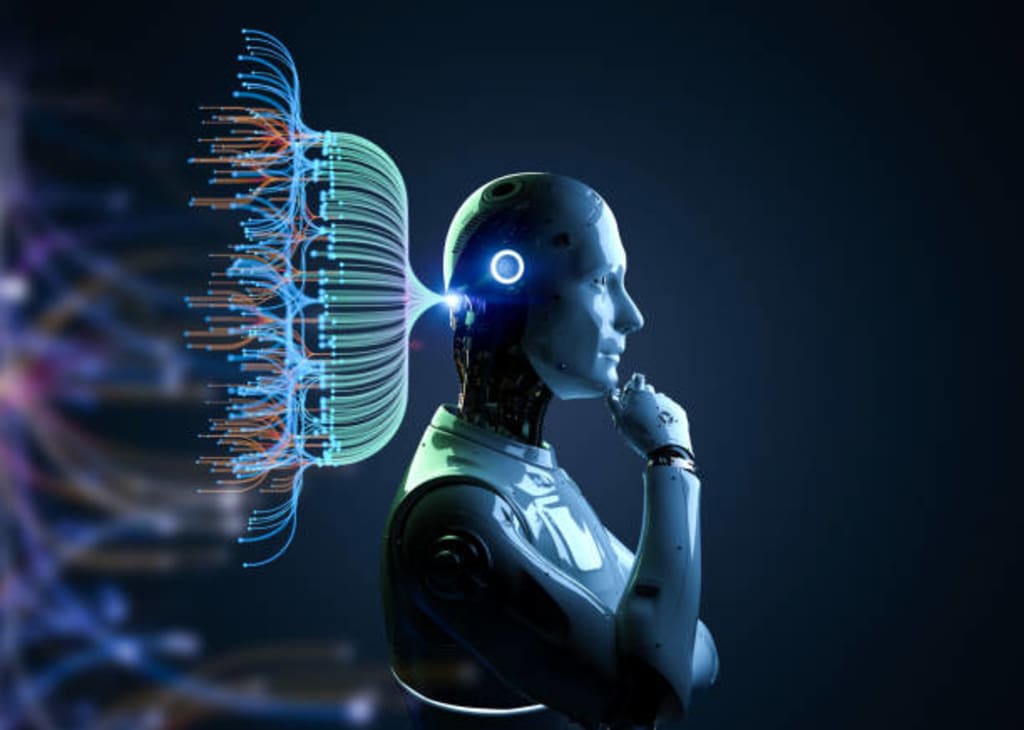The Transformative Power of AI
Impact on the Economy

Introduction:
Artificial Intelligence (AI) has emerged as a transformative technology, revolutionizing various sectors and reshaping the global economy. With its ability to analyze vast amounts of data, learn from patterns, and make intelligent decisions, AI is transforming industries, driving innovation, and generating new opportunities. In this blog post, we explore the impact of AI on the economy, its potential benefits, and the challenges it presents.
Automation and Increased Efficiency:
AI-powered automation is streamlining business processes and increasing efficiency across industries. By replacing repetitive and mundane tasks with intelligent machines, businesses can achieve higher productivity, reduce costs, and free up human resources to focus on more strategic and creative endeavors. This increased efficiency drives economic growth and allows companies to allocate resources more effectively.
Job Displacement and Skill Upgrading:
The widespread adoption of AI has raised concerns about job displacement. While certain tasks may become automated, new job roles and opportunities are also emerging. As AI takes over routine tasks, humans can focus on higher-value work that requires creativity, critical thinking, and emotional intelligence. However, it is crucial to address the challenges of reskilling and upskilling the workforce to ensure a smooth transition and avoid leaving individuals behind.
Enhanced Decision-Making and Predictive Analytics:
AI enables businesses to make data-driven decisions by analyzing vast amounts of information in real-time. This empowers organizations to identify trends, predict customer behavior, optimize supply chains, and make strategic decisions that drive growth. The ability to leverage AI-driven predictive analytics gives companies a competitive edge, allowing them to anticipate market trends, identify opportunities, and make informed business choices.
Innovation and New Business Models:
AI is a catalyst for innovation, enabling the development of new products, services, and business models. Industries such as healthcare, finance, transportation, and manufacturing are experiencing disruptive transformations driven by AI. Startups and established companies alike are leveraging AI to create innovative solutions, leading to the emergence of new markets and industries.
Economic Inclusion and Accessibility:
AI has the potential to promote economic inclusion by bridging gaps and improving accessibility. It can provide personalized services, automate routine tasks for individuals with disabilities, and enhance accessibility in various domains. Additionally, AI-driven technologies, such as chatbots and virtual assistants, are enabling businesses to reach and serve a broader customer base, contributing to economic growth and inclusivity.
Ethical Considerations and Regulation:
As AI becomes more integrated into the economy, ethical considerations and responsible use of AI become paramount. Issues such as privacy, bias, transparency, and accountability must be addressed to ensure the equitable and ethical deployment of AI technologies. Effective regulation and standards are essential to foster trust, protect individuals' rights, and maintain a fair and competitive marketplace.
In society, both governments and individuals play crucial roles in shaping the world we live in. While governments provide the framework and structure for governance, individuals contribute through their actions, choices, and participation. Let's delve into the roles of governments and individuals in society:
Government Roles:
- Policy-making and Governance: Governments are responsible for creating and implementing policies that address societal needs and promote the common good. They develop laws, regulations, and programs to ensure public welfare, maintain law and order, protect citizens' rights, and provide essential services such as education, healthcare, and infrastructure.
- Economic Stewardship: Governments play a vital role in managing and regulating the economy. They create economic policies, oversee fiscal matters, and promote growth and stability. Governments may intervene to ensure fair competition, protect consumer rights, and implement measures to address issues like unemployment, inflation, and income inequality.
- Protection and Defense: One of the fundamental roles of governments is to ensure the safety and security of their citizens. They maintain defense forces, establish diplomatic relations with other nations, and create policies to protect national interests and territorial integrity. Governments are also responsible for emergency management and disaster response.
- Public Services: Governments provide essential public services that benefit society as a whole. This includes areas like healthcare, education, transportation, public infrastructure, social welfare programs, and environmental protection. Through these services, governments strive to improve the quality of life and well-being of their citizens.
Individual Roles:
- Civic Engagement: Individuals have a responsibility to actively participate in their communities and engage in civic activities. This includes voting in elections, staying informed about social issues, expressing opinions, and holding government officials accountable. Civic engagement empowers individuals to contribute to the decision-making process and shape the policies that affect their lives.
- Active Citizenship: Being an active citizen goes beyond voting. It involves taking part in community initiatives, volunteering, joining advocacy groups, and participating in public forums. By engaging in collective action, individuals can drive positive change, raise awareness about important issues, and work towards the betterment of society.
- Respecting Laws and Regulations: Individuals have a duty to respect and abide by the laws and regulations established by the government. This includes respecting the rights and freedoms of others, paying taxes, and following established legal processes. By doing so, individuals contribute to a harmonious and functioning society.
- Social Responsibility: Individuals have a role in promoting social responsibility and ethical conduct. This involves treating others with respect, embracing diversity and inclusion, and actively working to address social issues such as poverty, inequality, and discrimination. Individuals can support charitable organizations, engage in sustainable practices, and foster a sense of empathy and compassion towards others.
- Personal Development and Education: Individuals have a responsibility to pursue personal development and education. By acquiring knowledge, skills, and critical thinking abilities, individuals can contribute to society in meaningful ways. Education equips individuals with the tools to engage in informed discussions, make informed decisions, and contribute to the advancement of society.
Conclusion:
The impact of AI on the economy is undeniable, with the potential to reshape industries, drive innovation, and generate economic growth. By embracing AI technologies, businesses can automate tasks, increase efficiency, and make data-driven decisions. However, it is crucial to address challenges such as job displacement and skill upgrading to ensure a smooth transition for the workforce. Ethical considerations, responsible use of AI, and effective regulation are essential to maximizing the benefits of AI while mitigating risks. As we navigate the AI revolution, collaboration between stakeholders is key to harnessing the transformative power of AI for the benefit of society and the economy as a whole.
About the Creator
FELIX Olikagu
Captivating storyteller and compassionate wordsmith. Join me on a journey through the power of words, as we explore diverse topics with depth, creativity as it concerns Health issues, Environment, Emotions, and a touch of magic. Explore!






Comments
There are no comments for this story
Be the first to respond and start the conversation.